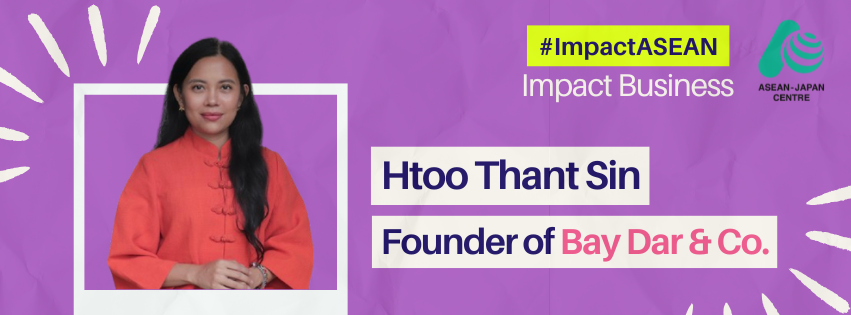Bay Dar & Co. is a social enterprise providing training to local artisans that helps preserve Myanmar’s rich cultural heritage, while combining modern techniques and designs with tradition. This social collaboration results in locally sourced home decors of high quality, sustaining the communities that Bay Dar & Co. works with.
Bay Dar & Co. Founder, Ms. Htoo Thant Sin, shares her #impact journey.
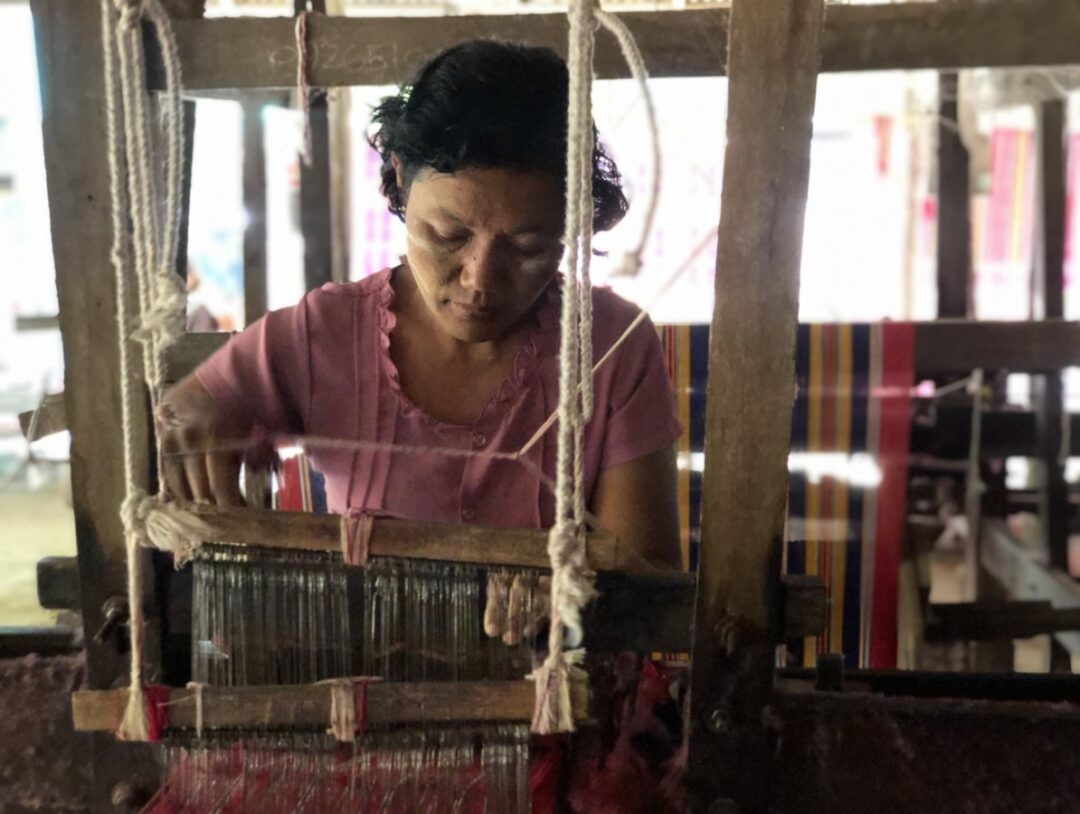
Tell me briefly about your #impact business activities.
Bay Dar & Co. is dedicated to creating high-quality luxury home decor while driving meaningful social change in Myanmar. Our business activities center around empowering local artisans by offering extensive training programs that blend traditional craftsmanship with contemporary techniques.
This not only preserves Myanmar’s rich cultural heritage but also enhances the artisans’ skills and marketability. We are committed to using locally sourced raw materials, which supports regional suppliers and promotes sustainable practices. By ensuring fair wages and stable employment, we contribute to the economic development of the communities we work with.
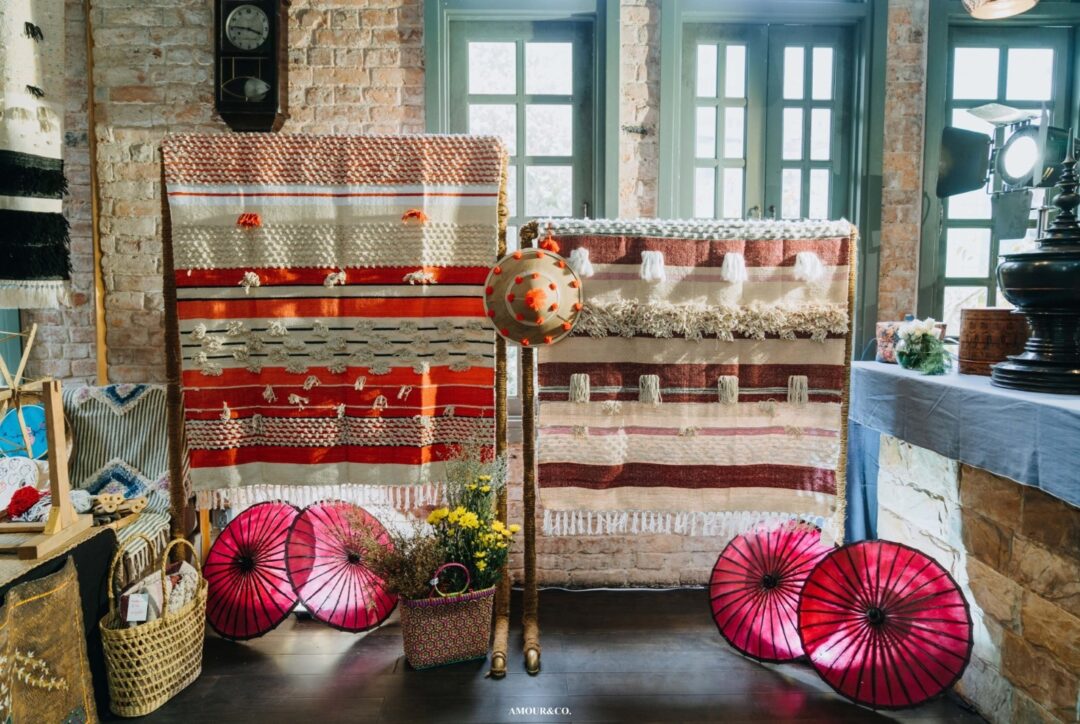
Our approach not only delivers unique, culturally inspired products, but also fosters economic growth, environmental sustainability, and the well-being of local artisans and their families.
How did your #impact journey begin?
My journey with Bay Dar & Co. began with my experience as an HR professional over the past 16 years. In 2017, I founded my HR consulting firm, Panellist Business Services, and through that work, I identified a significant skill gap in Myanmar’s corporate sector. To address this, I launched the Employability Skills Development Program (ESDP) as part of our CSR initiative, aimed at training fresh graduates and final-year students across Myanmar. This initiative provided me with the opportunity to explore various parts of the country and understand the local business landscape.
However, I realized that while this program was beneficial for those entering the corporate world, it did not address the needs of people in their communities who were not pursuing corporate careers. I listened to the feedback from these local communities and discovered a common challenge: despite Myanmar’s rich natural resources, there was a lack of technology, resources, and skills necessary to produce high-quality products for export.
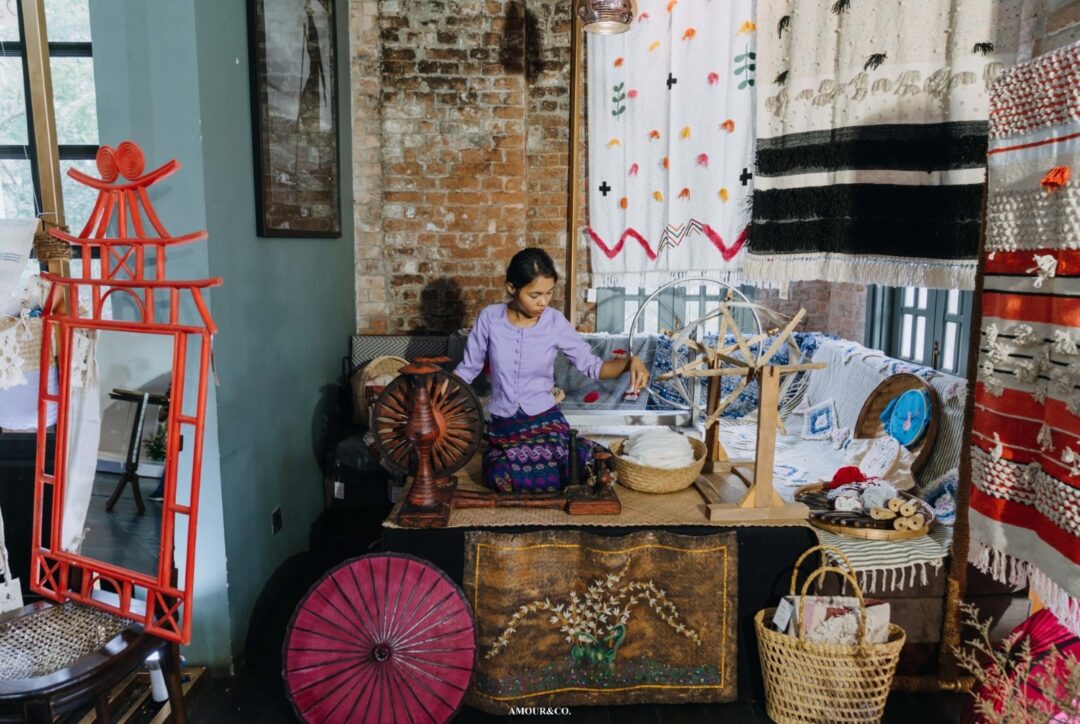
Recognizing the need for technology and skill enhancement, I travelled to neighbouring countries to attend workshops and gain insights, which I then shared with local artisans. This collaborative learning process helped us gradually produce unique, high-quality products. The journey was far from smooth; sourcing and financing were significant hurdles, and impact investment was often viewed skeptically.
This iterative process of learning, adapting, and overcoming challenges has been key to scaling Bay Dar & Co. to its current level of success.
– Htoo Thant Sin, Founder of Bay Dar & Co.
Why did Bay Dar & Co. decide to focus its work on handicrafts in Myanmar?
Myanmar’s artisans have a long history of creating exquisite, handcrafted products, but they often face challenges such as limited access to modern techniques, resources, and market opportunities. By focusing on handicrafts, I aimed to bridge these gaps, combining traditional skills with contemporary methods to enhance the quality and marketability of their products.
Moreover, my experience with the Employability Skills Development Program (ESDP) highlighted a broader need for economic empowerment in communities outside the corporate sector. By directing our efforts toward handicrafts, we can offer fair employment and skill development opportunities to artisans. This not only leverages Myanmar’s natural resources and artisanal heritage but also creates high-quality products that positively impact local communities.
As a social entrepreneur creating an impact in your country, what is your goal?
As a social entrepreneur, my primary goal is to drive sustainable development and economic empowerment within Myanmar by enhancing and preserving local craftsmanship while actively promoting the livelihood of targeted communities.
A central aspect of this goal is to empower artisans through comprehensive training programs and fair employment opportunities. By improving their craft and offering stable income, I aim to help artisans produce high-quality products that can compete effectively both locally and internationally.
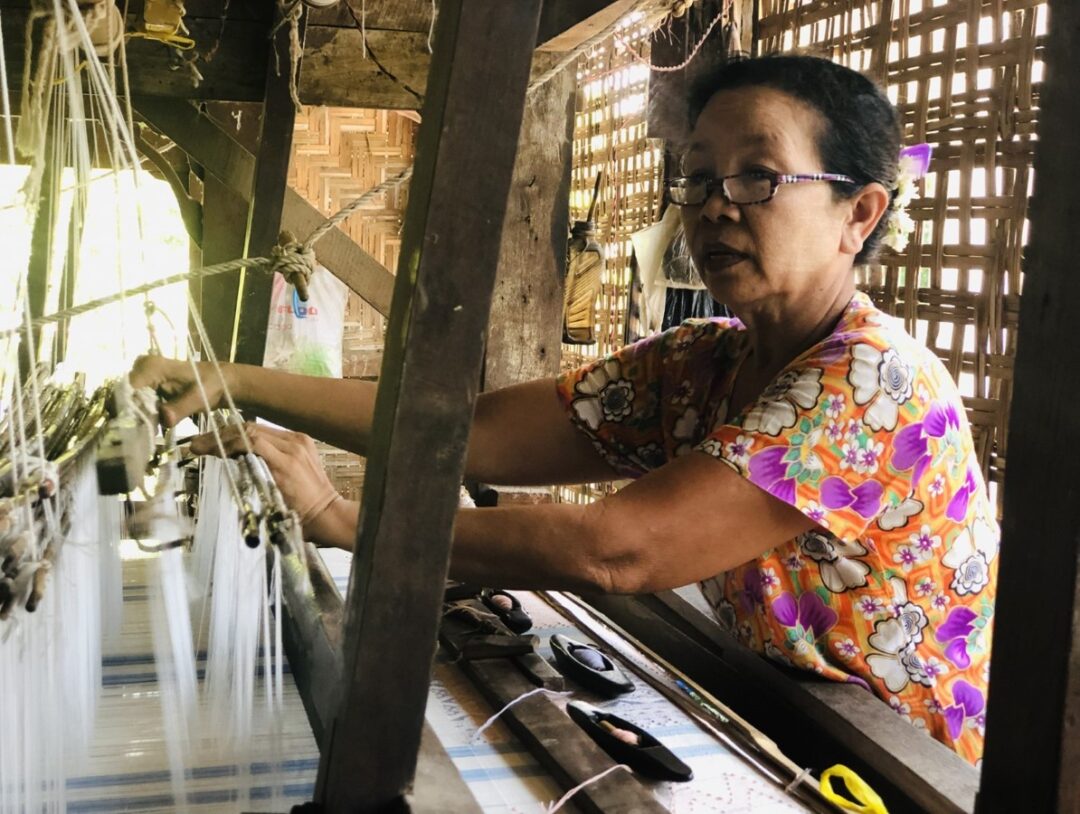
In addition to this, I am dedicated to promoting sustainable practices. This involves using locally sourced materials and implementing environmentally friendly production methods, which contribute to a more sustainable industry and reduce our environmental impact.
Fostering economic growth within the communities we work with is also crucial. By stimulating local economies and decreasing reliance on imported goods, I seek to create a positive economic impact and support broader community development.
Lastly, preserving Myanmar’s rich cultural heritage is a key component of my mission. By integrating traditional techniques with contemporary design, I aim to ensure that these valuable crafts are celebrated and passed down through generations; thus, maintaining our cultural legacy.
What are some challenges you faced in your business journey and how did you overcome these?
One of the biggest challenges I’ve faced in my business journey is dealing with limited talent and resources. Many people initially doubted the potential for growth and sustainability in the handicraft sector. This skepticism was compounded by the broader economic challenges in Myanmar, where the craft industry, despite its gradual growth, faces stiff competition from imported products in terms of quality and pricing.
In response to these challenges, we have employed several strategies. First, we prioritize resilience and adaptability. By actively listening to market needs, we continuously adjust our products and services to better align with market demands while staying true to our mission and core values. This flexibility has allowed us to remain relevant and competitive.
Innovation has been another key focus. Utilizing technology has enabled us to operate more efficiently with fewer resources; thus, supporting our growth despite the constraints.
Cost efficiency has also been crucial. We have implemented practices to optimize our operations and reduce expenses, ensuring that we can sustain our business model while delivering high-quality products. Additionally, retaining key talent has been essential to our success. We invest in our team by providing training and development opportunities, creating a supportive work environment, and recognizing their contributions.
What do you think makes Bay Dar & Co.’s business model in Myanmar successful?
Bay Dar & Co.’s success in Myanmar stems from several core principles and strategies that align with our mission and address the unique challenges of the local market.
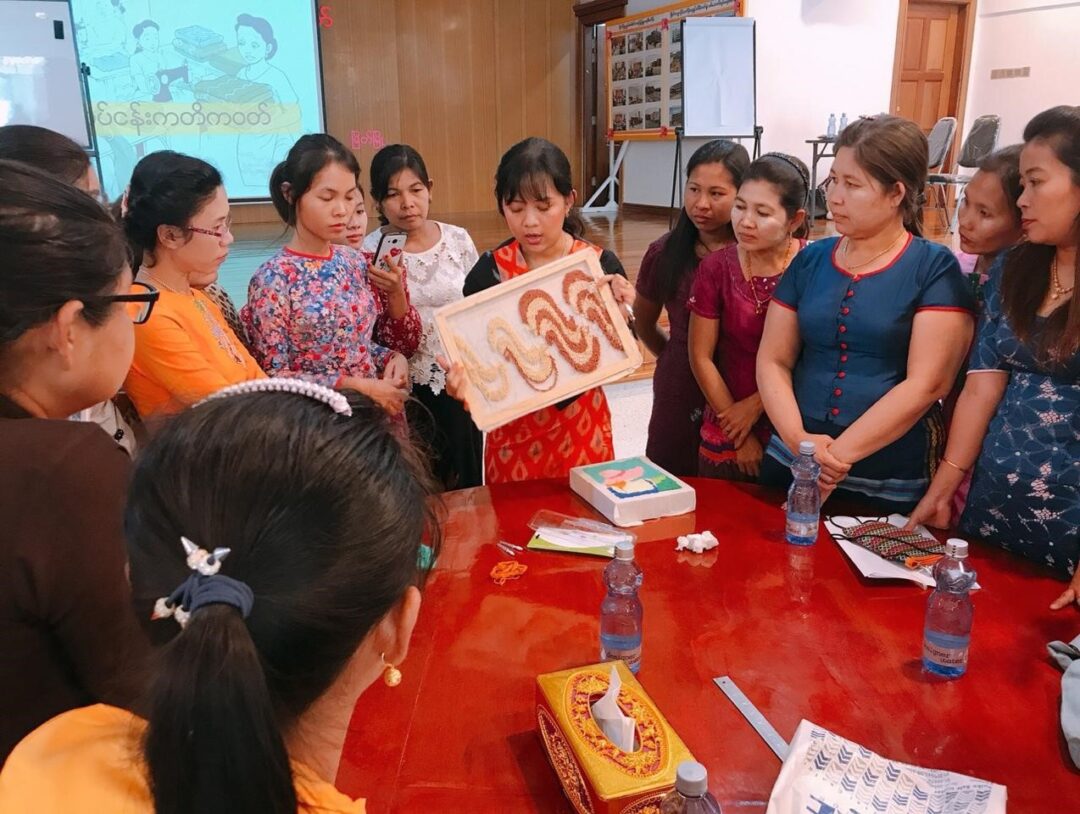
Firstly, our commitment to transparency and fair-trade principles is central to our business model. We maintain open and honest communication between our artisans and customers, ensuring that the origins of our products and the conditions under which they are made are clear and ethical.
This transparency fosters trust and loyalty among our customers and reinforces our dedication to fair trade, which is crucial for building a sustainable business.
– Htoo Thant Sin, Founder of Bay Dar & Co.
Secondly, we emphasize community engagement and artisan empowerment. Our Artisan Development Program provides artisans with the skills and knowledge needed to produce high-quality products. By involving them in the design and production processes, we ensure that they are not only contributors but also stakeholders in our success.
Our focus on leveraging local resources and adapting to market needs also plays a significant role. We use locally sourced materials and blend traditional craftsmanship with modern design techniques. This approach supports local suppliers and aligns with consumer preferences, enhancing our market competitiveness.
What is your call to action for our ASEAN audience, some of whom may be social enterprises just starting their impact journey?
To all the social enterprises and impact-driven individuals across ASEAN, my call to action is to persist in your mission despite challenges. Focus on understanding the real needs of your community and align your efforts to address those needs. Continuous learning and adaptation are key.
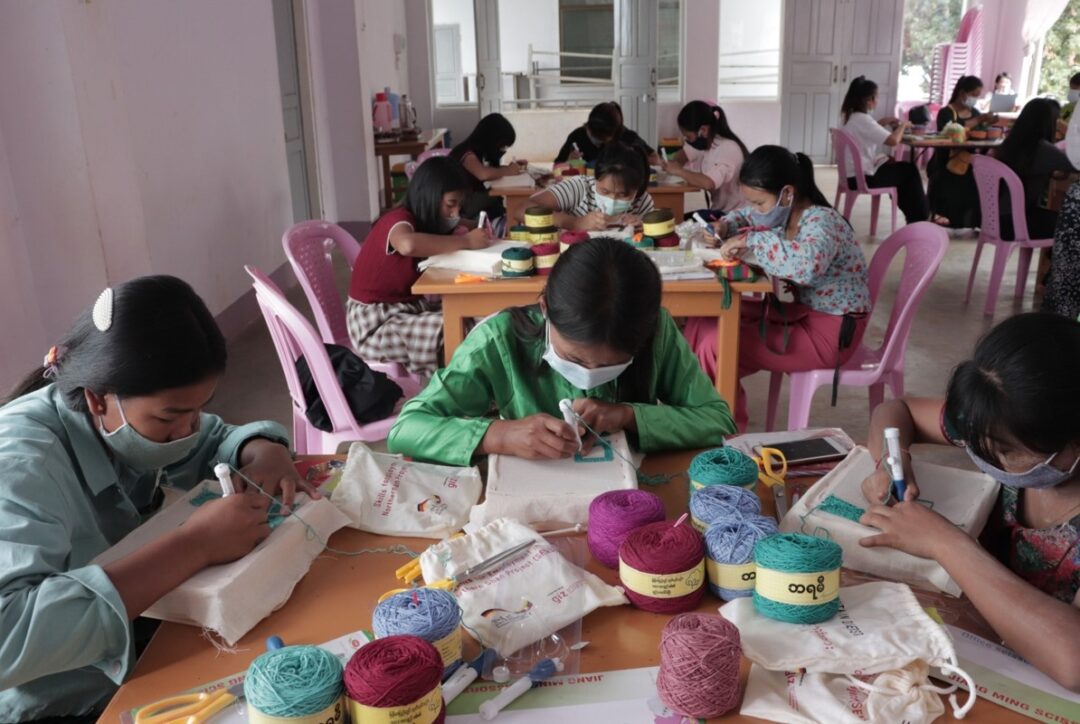
Embrace innovation, utilize technology, and engage with your stakeholders transparently. Building strong networks and partnerships can significantly enhance your impact. Remember, the journey might be tough, but the positive changes you bring to your community will be worth it.
*Photos courtesy of Bay Dar & Co.
Learn more about Bay Dar & Co on their website: https://baydar.co/
Disclaimers: This article does not constitute the promotion of the featured business. Interviews have been edited for clarity and conciseness.
| #ImpactASEAN is an initiative by the ASEAN-Japan Centre to spotlight impact investment & sustainable finance ecosystem actors of ASEAN and Japan. The ASEAN-Japan Centre works as an Enabler collaborating directly with its counterparts to promote impact investment through seminars, collaborative workshops, company visits, and research publications among others. Be a part of the #imapct and send us an email at info_rpa@ajc-wp-preview.yucca-works.jp |


